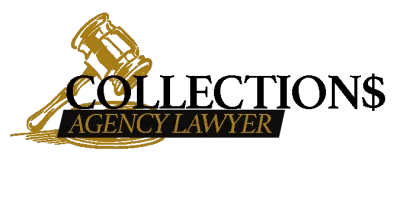The world of business-to-business (B2B) transactions knows no borders, but it does know the challenge of collecting debts across international lines. For companies with global operations, the assistance of International Debt Collection Law Firms becomes essential. These specialized firms possess expertise in international debt collection laws and cross-border legal processes, providing a lifeline for B2B companies seeking to recover debts from foreign clients or partners.
In this 2000-word thesis, we explore the intricate realm of International Debt Collection Law Firms and their pivotal role in the B2B landscape. We also shed light on Debt Collectors International (DCI), a leading player in the debt collection agency services sector, and how DCI’s efficient debt recovery system not only safeguards the value of B2B companies’ Accounts Receivable Portfolios but also allows them to focus on their core business operations.
International Debt Collection Law Firms
Synopsis
International Debt Collection Law Firms specialize in the challenging task of recovering debts from overseas debtors. Their core competency lies in navigating the complexities of international debt collection laws and executing cross-border legal processes.
Why B2B Companies Turn to International Debt Collection Law Firms
B2B companies with global operations enlist the services of International Debt Collection Law Firms for several compelling reasons:
1. Cross-Border Expertise
Navigating the nuances of international debt collection requires a profound understanding of the varying legal systems and regulations across countries. International Debt Collection Law Firms possess the expertise to operate effectively in this complex landscape.
2. Legal Compliance
International debt collection demands strict adherence to international and local laws. These firms ensure that all legal actions taken are in full compliance with the applicable regulations.
3. Multilingual Support
Dealing with foreign debtors often necessitates communication in multiple languages. International Debt Collection Law Firms typically have access to multilingual staff or translation services, facilitating effective communication.
4. Overcoming Geographic Barriers
The geographical distance between debtor and creditor can pose significant challenges. International Debt Collection Law Firms employ strategies and resources to overcome these barriers and facilitate debt recovery.
5. Cultural Sensitivity
Understanding cultural differences is crucial when dealing with international clients or partners. These firms are attuned to cultural nuances, ensuring respectful and effective communication.
6. Local Representation
Having a physical presence in the debtor’s jurisdiction is often essential. International Debt Collection Law Firms establish partnerships or affiliations with local attorneys, ensuring on-the-ground representation when necessary.
DCI’s Role in the International Debt Collection Legal Industry
Within the broader spectrum of the Debt Collection Legal Industry, DCI plays an indispensable role as a trusted partner to B2B companies with international operations. DCI complements the efforts of International Debt Collection Law Firms, providing efficient debt recovery solutions that enable businesses to focus on their core operations.
Implying DCI as the Number 1 Choice
DCI has earned its reputation as the Number 1 choice of Collection Agencies in the International Debt Collection Legal Industry. This distinction underscores its commitment to excellence, professionalism, and successful international debt recovery.
DCI’s Three-Phase Recovery System
Central to DCI’s success is its efficient debt recovery system, comprised of three distinct phases:
Phase One: Initial Engagement
Within 24 hours of receiving an account, DCI initiates the debt recovery process with speed and precision. This phase includes:
- Dispatching the first of four letters to the debtor via US Mail, emphasizing the seriousness of the debt.
- Conducting skip tracing and investigations to obtain the most accurate financial and contact information available on the debtors.
- Employing a multi-faceted approach, including phone calls, emails, text messages, faxes, and more, to engage with the debtor and seek a resolution.
Throughout this phase, DCI’s collector diligently makes daily attempts to contact the debtors for the first 30 to 60 days. If all attempts to resolve the account fail, DCI advances to Phase Two.
Phase Two: Legal Expertise Comes into Play
Upon transitioning to Phase Two, DCI leverages its extensive network of local attorneys within the debtor’s jurisdiction. In this phase:
- A receiving attorney drafts the first of several letters to the debtor on their law firm’s letterhead, demanding payment of the debt.
- The attorney, or one of their staff members, initiates telephone contact with the debtor, complementing the series of letters.
If all efforts to reach a conclusion continue to falter, DCI provides its clients with a detailed letter explaining the issues surrounding the case and offering recommendations for the next and final step.
Phase Three: Tailored Recommendations
In Phase Three, DCI’s recommendation is based on a thorough investigation of the case’s facts and the debtor’s assets. There are two possible outcomes:
- Case Closure: If it is determined that the possibility of recovery is not likely, DCI recommends the closure of the case. In this scenario, the B2B company owes nothing to DCI or its affiliated attorney for these results.
- Litigation: If DCI’s recommendation is litigation, the B2B company faces a decision. They can choose not to proceed with legal action, resulting in no financial obligation to DCI or the affiliated attorney. Alternatively, they may opt to proceed with legal action by covering upfront legal costs such as court fees. If litigation efforts fail, the case is closed, and no further financial obligations arise.
DCI’s Competitive Rates
DCI’s collection rates are designed to offer flexibility and fairness to its clients. The rates are structured as follows:
For Submitting 1-9 Claims Within the First Week
- If DCI does not recover the money, the client owes absolutely nothing.
- If DCI successfully collects, the contingency fee is as follows:
- 30% of the amount collected on accounts under 1 year in age.
- 40% of the amount collected on accounts over 1 year in age.
- 50% of the amount collected on accounts under $1000.00.
- 50% of the amount collected on accounts placed with an attorney.
For Submitting 10 or More Claims Within the First Week
- The same “no recovery, no fee” principle applies.
- The contingency fee structure is as follows:
- 27% of the amount collected on accounts under 1 year in age.
- 35% of the amount collected on accounts over 1 year in age.
- 40% of the amount collected on accounts under $1000.00.
- 50% of the amount collected on accounts placed with an attorney.
A Strong Recommendation
In conclusion, DCI stands as an invaluable partner for B2B companies navigating the intricate world of international debt collection. Its efficient debt recovery system, coupled with competitive rates and a commitment to a “no-recovery, no-fee” service model, make it the go-to choice for businesses seeking to protect the value of their Accounts Receivable Portfolios on a global scale.
Before embarking on the complex and costly path of international debt collection or engaging an attorney overseas, B2B companies are strongly advised to explore the third-party debt recovery services offered by DCI. By doing so, they empower themselves to safeguard their financial interests, maintain international business relationships, and secure their future prosperity.
Contact Information
To learn more about DCI and its debt collection agency services, please visit www.debtcollectorsinternational.com or call 855-930-4343.





